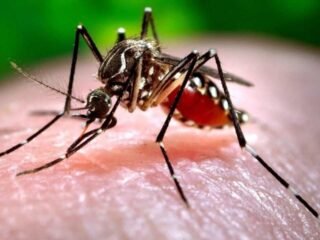New Delhi, 10 May 2025: In a groundbreaking development, artificial intelligence (AI) is now capable of predicting cancer survival rates by simply analyzing a person’s selfie. According to a recent study published in the prestigious medical journal The Lancet, AI-powered facial recognition models can detect subtle physical cues and patterns from facial images that are linked to a patient’s overall health condition and cancer progression. This revolutionary finding is set to transform how cancer prognosis is conducted, especially in areas with limited access to advanced medical tools.
AI + Selfies: A Game-Changer in Cancer Diagnosis and Prognosis
Researchers involved in the Lancet study trained AI models using thousands of facial images of cancer patients. The AI systems were able to spot features like facial asymmetry, skin tone changes, muscle loss, or swelling—some of which are early indicators of deteriorating health or aggressive cancer growth. Incredibly, the system could predict a cancer patient’s overall survival chances and potential treatment outcomes with a high degree of accuracy.
The AI model reportedly performed better than some traditional clinical assessments, especially when it came to detecting poor prognosis in late-stage cancer patients. This opens new possibilities for faster, non-invasive, and cost-effective screening—just with a selfie clicked on a mobile phone.
What This Means for India and Other Low-Resource Countries
In countries like India where access to healthcare is often limited by geography or affordability, this innovation could prove to be a life-saving solution. Imagine a future where a rural patient can upload a selfie through a health app and receive a detailed risk profile, guiding doctors to prioritize treatment urgency. The technology has the potential to bridge the gap between urban and rural cancer care, and assist in early intervention even before a full-fledged diagnosis is made.
Moreover, this could reduce the burden on already overwhelmed oncology departments and allow healthcare systems to triage more effectively.
But How Reliable Is It?
While the technology shows immense promise, experts warn that it is not a replacement for conventional diagnostics like biopsies, blood tests, or imaging. The AI model is meant to be an early warning tool that complements traditional clinical practices. Concerns about privacy, data misuse, and the ethical implications of using facial data in medicine are also being actively discussed.
To ensure accuracy, further validation across diverse populations and cancer types is required. The original study had participants from limited demographic groups, which means larger-scale trials will be necessary to confirm its reliability worldwide.
The Future of Cancer Care Is Getting Smarter
With AI evolving rapidly, healthcare is on the verge of a new frontier where something as simple as a selfie could guide life-saving treatment decisions. While we’re still a few years away from seeing this technology in mainstream use, the possibilities it offers—especially for early cancer detection, survival prediction, and accessible remote care—are nothing short of revolutionary.
As research continues, one thing is certain: the way we diagnose, monitor, and treat cancer is changing—and AI is leading the charge.







